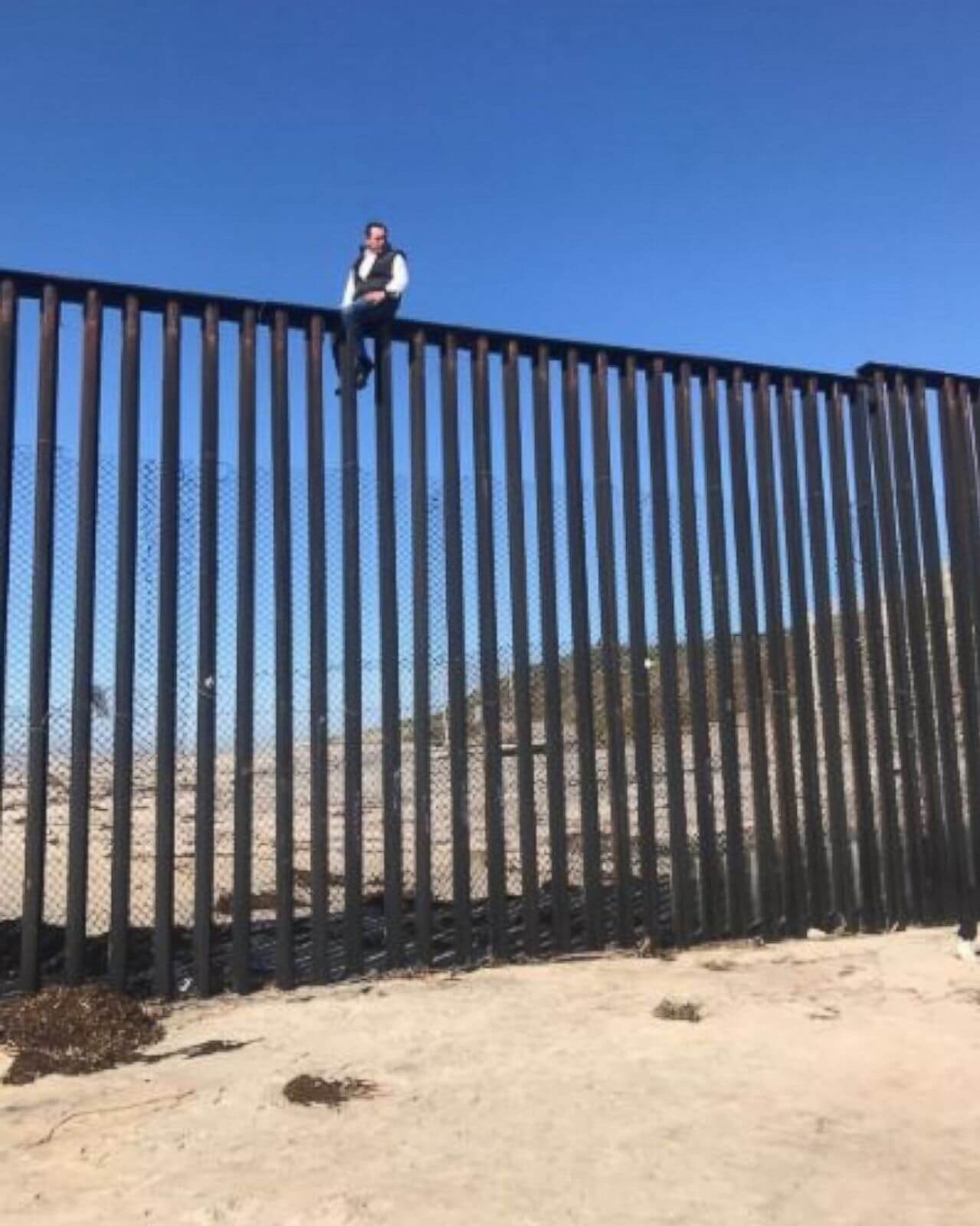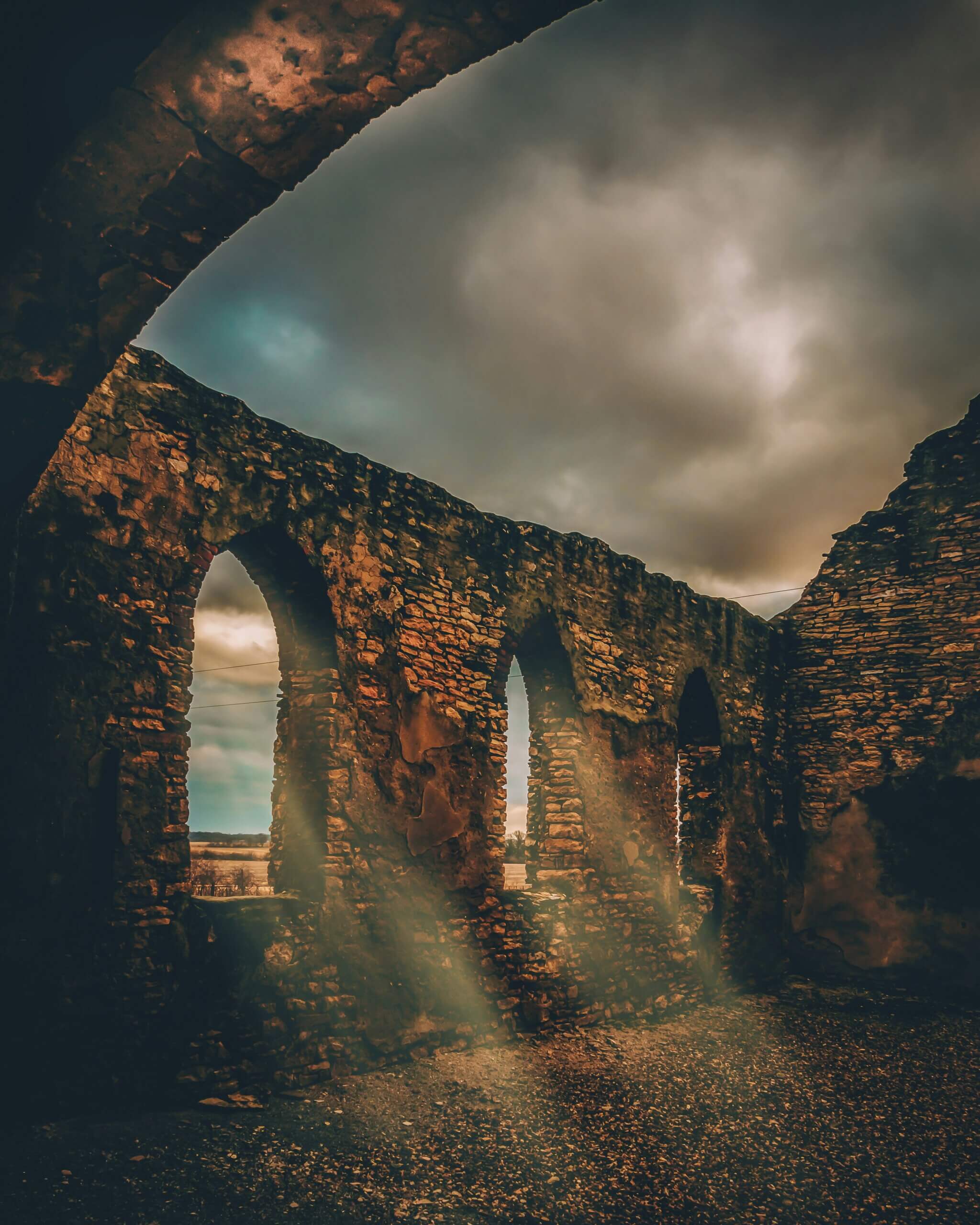22 Sepember 2019
Readings: Amos 8:4-7 Psalm 113 Bonhoeffer (Letters and Papers from Prison) Luke 16:1-13
For the noontime Eucharist on Wednesdays, we usually commemorate a saint who is remembered on the church calendar that week. Last Wednesday, we used the propers for St Ninian. The short biography in For All the Saints, told us that Ninian was “a fifth-century bishop who was the first to preach the gospel in western Scotland. He originally came from England, then a province of the Roman empire, and spent many years in centres of Christian culture like Rome and southern Gaul. At that time the leaders of the Church tended to think that people who lived outside the boundaries of the Roman empire were not worth converting to Christ. In Britain this attitude was visibly reinforced by Hadrian’s Wall, a string of stone forts built across the northern boundary of England, in order to keep out the Scottish tribes. But one day Ninian either climbed over or sailed around this wall and headed into barbarian territory in order to bring the gospel to the enemies of his culture.” The spunkiness of Ninian’s extramural adventure caught my attention. We live in a time when there is an ocean of rhetoric about walls. I have lived long enough to remember when the Berlin wall was erected, and I own a chunk of the wall from when it was torn down in 1989. Walls are real or imagined, bricks and mortar, as well as metaphorical.
The prophet Amos writes at a time when there were social walls between the rich and powerful and those they cheated and took advantage of. To the rich, the Sabbath and religious festivals were an inconvenience that restrained trade. They couldn’t wait for the festival or day of rest to be over so they could get back to their con and hustle.
Dietrich Bonhoeffer, in prison for his opposition to Hitler and the Nazi regime, reminds his correspondents how the powers have corrupted Christ’s message in the churches of the day. Aryan supremacy then–or now–is not a hallmark of the realm of God.
In some the ways the history of the church is the history of breaking down the walls that divide: the Apartheid over skin color in South Africa or ethnicity in Israel; the many barriers women have had to overcome (to get a credit card in their own name, to vote, to be ordained as ministers, to be paid on par with their male colleagues); the walls that prevented gays, lesbians, bi, and transgendered people from being regarded with worth and dignity. None of thiese barriers came down easily, and some are still staning firm.
The happenings all around the world this week are witness to the growing resolve to take on the the industries, governments, and people refusing to accept the reality of the global climate emergency. I have a feeling that bunkering down is not going to work this time. You may have seen the same pairing of images that I did this yesterday: The young climate activist, Greta Thunberg, sitting alone outside the Swedish Parliament in August 2018, one person on strike from school, next to a photo taken this past Friday, a little more than a year later, showing some of the crowds making up a reported four million students and others participating in strikes and demonstrations around the world. People will climb over walls, sail around them, or sledgehammer them down if that is what the future is calling them to do.
Which brings us to today’s gospel reading. I found myself thinking differently about the shrewd estate-manager, a story that appears only in Luke’s gospel. Even Jesus doesn’t condemn the man’s strategy. The estate-manager is in a position of power to give hefty discounts to his boss’s various debtors, and in so doing creates some goodwill before he has to re-enter the job market. In our own age we hear of whistleblowers, people who have knowledge of practices or policies that corporations or governments engage in or operate under that, if known publicly, would bring condemnation or legal action. Knowledge is power, and it will be interesting to see if, with the changing tides around acceptance of the climate crisis, more people within companies and governments find the resolve to do what needs to be done for the sake of the world.
As a parish, we are entering a chapter in our history that, in some ways, involves negotiating with the constructs that have been part of what jas defined us. The historical plaque on the wall outside tells the world that Holy Trinity was built with a donation that stipulated the pews be forever rent-free, at a time when pew-rents was how churches paid the bills. Early in our history, immigrants who were not welcomed by some other churches were welcomed here. At a time when police were still raiding gay bars in Toronto, Holy Trinity opened the church for tea dances. At a time when same-sex marriage was available civilly in Canada, Holy Trinity strived to make it possible in the Anglican Church. Since the early 1990s, Holy Trinity, through its Refugee Committee, has sponsored more than 130 newcomers to Canada. We have long been advocates for safe and affordable housing, while regrettably continuing to acknowledge the names added each month to the Homeless Memorial of those who die on the streets of Toronto, as a consequence of being homeless.
If we want to continue to engage in meaningful ways as a community of faith, it will require breaking through some of our long-held assumptions of how that can happen. When I arrived in 2008, our Policies and Procedures manual spelled out who could be a volunteer at Holy Trinity. First of all, you needed to be a member of Holy Trinity. Some years later, as members who had been on the ground floor of the Refugee Committee were feeling their age, there was talk of not having the energy and volunteers to pull off the annual book sale. I’m not certain exactly how it happened, but it involved a bit of thinking outside the box, and we drew the circle wider. Now, as long as all volunteers can pass safe-church screening for the level of risk their ministry involves, they can be part of the team, so these days we have many volunteers who are not members of the church, but are an important part of helping us live out our mission.
I don’t believe the Anglican Church of Canada publishes national membership and church attendance statistics, but I would be surprised if they don’t mirror those published by the Episcopal Church in the United States. In 2005 the Average Sunday Episcopal Church attendance was about 827,000. In 2018, it was 586,000, a 29% drop in 13 years. This doesn’t mean that there aren’t pockets of growth, but the overall trend is quite plain. At Lifting Spirits the other day, Jennifer Henry described how her position as Executive Director at KAIROS has changed dramatically from representing a coalition of denominations in her work to now also engaging Indigenous entities and other non-denominational organizations in an expanding network of people who share a passion for social justice. Today we welcome Zachary Grant as Holy Trinity’s Community Director, a new position created to help navigate the ever changing waters in which our boat floats. We call this architectural space the nave, a word which traces its lineage to the Latin word for boat. I am reminded of the story of Noah, and how, when catastrophic change was on the horizon, God told him to make a big boat and put some of every living thing on that ark. And when the waters receded creation had a reset. There is an Oscar-winning animated film from Pixar called WALL-E. I think of it as a modern re-telling of the Noah story. It is set in the kind of dystopian future our planet can anticipate if we fail to manage our global CO2 emissions. WALL-E is the last robot on earth, and he spends his days cleaning up the planet, one piece of garbage at a time, while the last remnant of humans have moved to an orbital (“Ark”) for survival. In WALL-E’s case the forty days and forty nights becomes 700 years, but one day, like the dove who returns to the ark with an olive leaf, WALL-E discovers a tiny green plant, and that is a sign that the planet might be ready once again for human habitation.
Bonhoeffer’s words from prison give me hope: “The Church is the Church only when it exists for others…not dominating, but helping and serving.” And helping and serving is something we have a little experience with at Holy Trinity. May God continue to bless us with the vision and resolve as we adapt to a changing planet.






